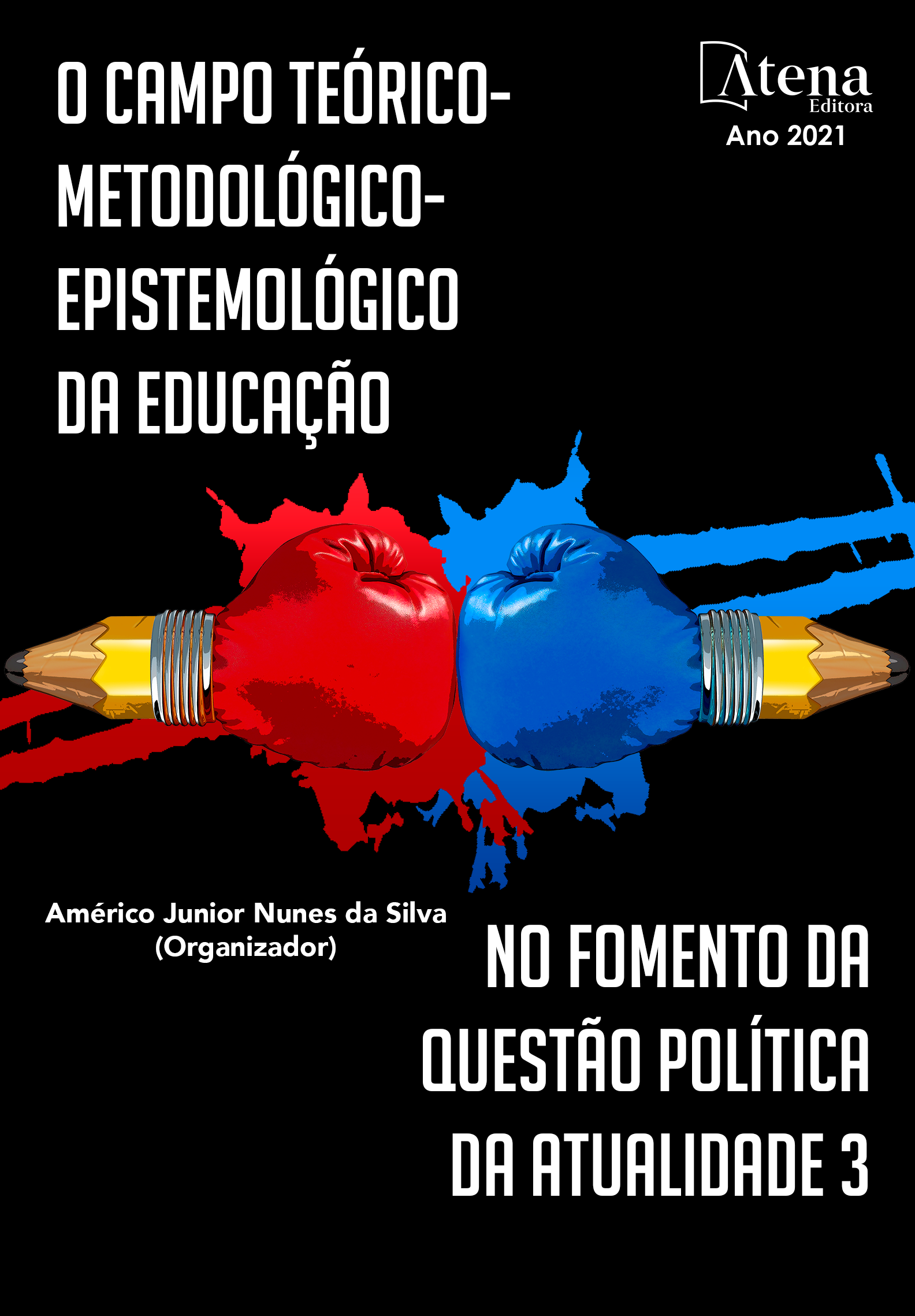
EDUCAÇÃO E POLÍTICA: DELINEAMENTOS TEÓRICO-IDEOLÓGICOS
Este trabalho tem por objetivo apresentar uma análise das relações entre educação e política, tendo em vista o delineamento ideológico destas nas sociedades política e civil. Configura-se como um estudo de natureza teórico-bibliográfica em uma perspectiva qualitativa de interpretação. Em termos estruturais, o texto divide-se em três seções: na primeira, a educação é concebida como um componente estrutural, enquadrado na instância ideológica; na segunda, busca-se o estabelecimento de uma maior vinculação entre ideologia e política no interior do Estado e da sociedade civil; e, na terceira e última seção, apresenta-se algumas considerações sobre política educacional, sendo esta construída pela base conceitual discutida nas seções anteriores. A construção teórica desenvolvida neste texto assinala que o poder de imposição do Estado caracteriza-se como político, mas, por isso mesmo, educador. Nesse sentido, todo ato político é educativo e, consequentemente, toda ação direcionada ao sistema educacional não pode deixar de ser essencialmente uma prática política, ou seja, um ato de poder a partir de um posicionamento de classe. Infere-se disso, que a ideologia realiza-se nos organismos sociais, vinculando-se de modo efetivo à educação, tendo, portanto, o sistema escolar como um desses organismos; no que diz respeito a relação entre política e ideologia, esta é percebida como mecanismo fundamental acionado para o exercício do domínio de classe, ou uma parte dela, tendo em vista o conjunto em sua totalidade, ou ainda, como instrumento indispensável para a luta de classes dentro do “bloco histórico” ou da formação social; em outra perspectiva (efeitos), no que concerne a questão da educação como instrumento ideológico, nem sempre o aparelho estatal consegue impor sua concepção ideológica, pois, no contexto educacional, o educador (sujeito/ator do processo) educa-se no confronto com situações contraditórias. Nesse movimento, pode-se considerar que a educação é processo de imposição da hegemonia dominante, tanto no interior do Estado, como no interior da sociedade civil. E, ao mesmo tempo, num movimento contraditório, pode se revelar instrumento de resistência das classes subordinadas.
EDUCAÇÃO E POLÍTICA: DELINEAMENTOS TEÓRICO-IDEOLÓGICOS
-
DOI: 10.22533/at.ed.3012125031
-
Palavras-chave: Educação. Política. Ideologia. Pesquisa.
-
Keywords: Education. Policy. Ideology. Search.
-
Abstract:
This work aims to present an analysis of the relationship between education and politics, with a view to their ideological delineation in political and civil societies. It is configured as a theoretical-bibliographic study in a qualitative perspective of interpretation. In structural terms, the text is divided into three sections: in the first, education is conceived as a structural component, framed in the ideological instance; in the second, it seeks to establish a greater link between ideology and politics within the State and civil society; and, in the third and last section, some considerations about educational policy are presented, which are built on the conceptual basis discussed in the previous sections. The theoretical construction developed in this text points out that the State's power of imposition is characterized as political, but, for this very reason, educator. In this sense, every political act is educational and, consequently, any action directed at the educational system cannot fail to be essentially a political practice, that is, an act of power based on a class position. It follows from this, that ideology takes place in social organisms, linking itself effectively to education, having, therefore, the school system as one of these organisms; with regard to the relationship between politics and ideology, this is perceived as a fundamental mechanism used to exercise class domination, or a part of it, considering the whole as a whole, or even as an indispensable instrument for the struggle of classes within the “historical block” or social formation; in another perspective (effects), regarding the issue of education as an ideological instrument, the state apparatus is not always able to impose its ideological conception, because, in the educational context, the educator (subject / actor of the process) is educated in the confrontation with contradictory situations. In this movement, it can be considered that education is a process of imposing the dominant hegemony, both within the State and within civil society. And, at the same time, in a contradictory movement, it can prove to be an instrument of resistance by the subordinate classes.
-
Número de páginas: 11
- Cristina Fátima Pires Ávila Santana
- Elis Regina dos Santos Viegas


